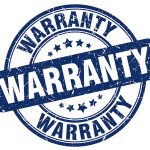Should I Purchase Extra Warranties From The Suppliers?
This article aims to briefly examine the Australian Consumer Law (ACL) in relation to consumers’ rights when it comes to buying goods or services, and whether as a consumer, one always needs to buy extra warranties offered from the suppliers. What is a ‘warranty’? This is a voluntary promise offered by the business who sold […]

Should I Purchase Extra Warranties From The Suppliers?
This article aims to briefly examine the Australian Consumer Law (ACL) in relation to consumers’ rights when it comes to buying goods or services, and whether as a consumer, one always needs to buy extra warranties offered from the suppliers. 
What is a ‘warranty’?
This is a voluntary promise offered by the business who sold the goods or services to you. It is an offer before you accept it, but once you purchase the goods or service, you have accepted that offer and by operation of law, it then becomes a right that you can expect from the supplier and enforce it under the ACL.

What is a ‘Guarantee’?
The word guarantee is often confused with the word warranty. A guarantee implies commitment given by the seller concerning the product quality. Therefore, it can be said that the main difference between a warranty and a guarantee is that while the warranty is written, the guarantee is implied – For instance it is an implied guarantee from a manufacturer that the goods they manufacture are of acceptable quality.
Are There Different Types Of Warranties?
Yes, For the purposes of this article, let it be clear that there is always a manufacturing warranty that is adhered to any new product you purchase which is usually 12 months from the date of your purchase. This is commonly known as an automatic consumer warranty. You should not pay any extra money to the supplier to acquire this warranty. In some circumstances, the period of the warranty may extend beyond the 12 months automatic manufacturing warranty.
There are many examples of the common or automatic warranty associated with the goods you purchase— For instance, the salesman, or saleswoman may tell you that the goods you purchase can do certain things, have certain endurance, or certain powers, or you may be told that the goods is not defective and, if it is, the defective goods will be repaired or replaced at no cost to you, or you may be provided with some compensation.

What Language Is Required From The Manufacturer When Pledging Warranties Against Defect?
As of 1 January 2012, the law has made it mandatory that any warranty description against defect must be written in a plain language to include the name and address of the business giving the warranty and the claim process, for example.
Do I Need To Buy an Extended Warranty For The Goods I Purchase?
It is a common knowledge that purchasing an extended warranty is always an option at your discretion. Some businesses use wordings to the effect that such extra warranties provides extra protection you wouldn’t usually get. This is an incorrect statement. It is one thing to have an extra warranty for accidental fall or damage to a device, it is another to state that the extra warranty extends the usual manufacturing warranty from say 12 months to 36 months. Unfortunately, the fine line is not always drawn and explained by some retailers leaving the consumers confused and thinking that the manufacturing warranty is not good enough to give protection against defective goods or services. Put simply, the usual manufacturing warranty is non-replaceable, its rights cannot be taken away or waived and is inherent in the goods and service you purchase.
How Do I Know If I Need To Purchase Extra Warranty Or Not?
In short, when you purchase a goods or service, think objectively about what you expect from the goods for the purposes you purchase them. How long do you likely expect the goods or service to perform for you, or do you need extra protection such as an extra warranty to protect the value of the money you paid for the goods or service?
- We recommend that you do your research before committing to purchase any goods or services.
- Write down objective questions and ask these directly from the salesperson you meet.
- Ask the salesperson to explain to you what your automatic consumer warranties are and what will be included in any extra warranty.
- Think objectively if you really need any extra warranty on top of your automatic consumer warranty.

For detailed information about this topic and alike, you may access the following link:
https://www.accc.gov.au/consumers/consumer-rights-guarantees/warranties







SHARE THIS